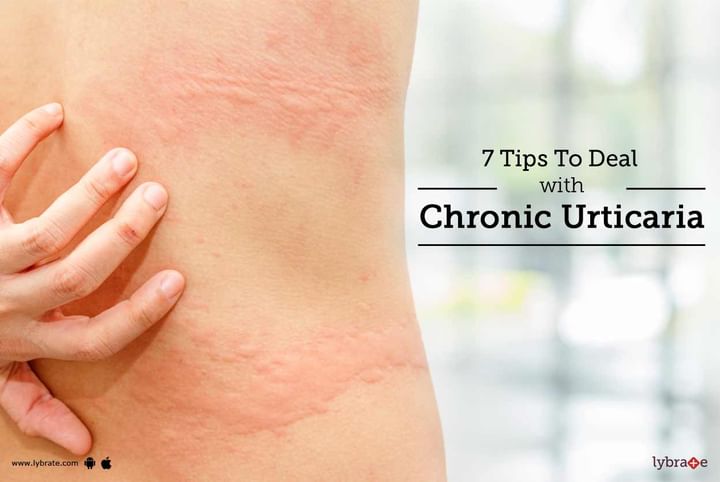7 Tips to Get Rid of Chronic Urticaria or Hives
Are you looking for ways to deal with chronic urticaria? This is an uncomfortable skin health condition which is featured by red, itchy welts appearing on any part of your body. The cause of this condition is unknown to us most of the time. When the cause of chronic urticaria cannot be determined, the condition is called chronic idiopathic urticaria. There are several ways of dealing with this condition.
Tips to Manage Chronic Urticaria Naturally
-
Try to Avoid Known Triggers: Avoiding known triggers is the best way of controlling chronic urticaria skin problems. You should consult an allergist for determining the triggers which might affect you. The most common triggers include foods such as eggs, shellfish, peanuts, and several food additives. Several pain medications, physical stimuli like temperature, exercise, pollen, and certain bacterial infections, and viral infections are common triggers of Chronic urticaria.
-
Take Your Medicines Regularly: You should regularly take your medicines prescribed for treating chronic urticaria or hives. Antihistamines are commonly used. The use of corticosteroids or epinephrine infections may also be required.
-
Soothe Your Skin: Scratching is bad for your chronic urticaria and should be avoided to prevent the hives from being aggravated. Dry skin triggers scratching and so you should keep your skin well moisturized. Take frequent baths, and use moisturizing creams and ointments.
-
Wear Loose Clothes: Friction and pressure on your affected skin may worsen the hives. You should abstain from wearing tight belts, constricting clothes, and shoes that do not fit well. Choose soft fabric material clothes to avoid friction and itching issues.
-
Vitamin D Supplements: Adding vitamin D supplements may help in reducing the symptoms of chronic urticaria or hives issue. You should consult your dermatologist before taking vitamin D supplements on your own.
-
Alternative Therapies of Chronic Urticaria: Stress accounts for worsening this health condition. You should practice techniques that relax your mind and soul, such as meditation, yoga, and deep breathing. These are effective in stress relief. Some studies state that acupuncture may also be associated with decreasing the symptoms of chronic urticaria.
-
Manage Your Symptoms: If you are suffering from chronic urticaria, all your efforts will be directed towards managing all the visible symptoms. However, you must also deal with invisible symptoms such as depression and anxiety. Living with this condition is a challenging and painful task, which often results in depression, and emotional imbalance. Emotional stress, fatigue, and emotional distress are triggered by chronic urticaria.
It is important for you to consult a dermatologist if you experience any symptoms of chronic urticaria. Early diagnosis and early treatment will prevent the condition from worsening further.
Update From Lybrate: Keeping your skin healthy is very important, therefore, we suggest you choose the Skin Care Products according to your skin type requirements and usages at Lybrate.
In case you have a concern or query regarding skincare consult doctor online, you can always consult the best dermatologist online & get the answers to your questions.



+1.svg)
